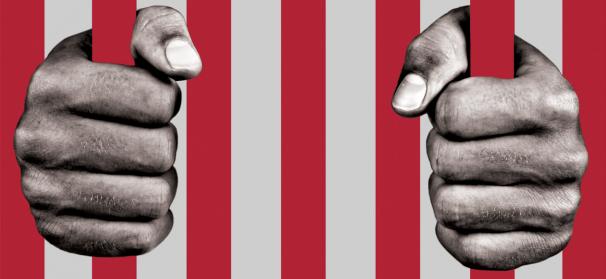Erin E. Murphy
- Norman Dorsen Professor of Civil Liberties
- erin.murphy@nyu.edu
- Vanderbilt Hall 420 • 212.998.6672
- Assistant: Jenna Kass jk8552@nyu.edu
212.998.6653
AREAS OF RESEARCH
Criminal Law, Criminal Procedure, Evidence, Forensic Evidence
Erin Murphy’s research focuses on the criminal legal system, with a particular focus on procedural questions related to policing and new technologies, substantive questions related to sexual assault and drug policy, and evidentiary questions related to forensic science. She is an internationally-recognized expert in forensic DNA typing, and the author of Inside the Cell: The Dark Side of Forensic DNA and co-editor of the Modern Scientific Evidence treatise. From 2012 to 2021, she served as the associate reporter for the American Law Institute’s successful revision of Article 213 (Sexual Assault and Related Offenses) of the Model Penal Code. From 2021 to 2022, she served as senior policy advisor for criminal justice at the White House Domestic Policy Council. Murphy has translated her scholarly writing for more popular audiences by publishing in Science, Scientific American, New Scientist, New York Times, Washington Post, San Francisco Chronicle, USA Today, Slate, The Atlantic, and New Republic, and has offered commentary for numerous media outlets, including NPR, PBS, CNN, Fox, MSNBC, and NBC Nightly News. A proud recipient of the 2012 Podell Distinguished Teaching Award, Murphy’s course offerings include criminal law and procedure, evidence, forensic evidence, and professional responsibility in the criminal context. She clerked for Judge Merrick B. Garland on the US Court of Appeals for the DC Circuit and spent five years as an attorney at the Public Defender Service for the District of Columbia.
The Dark Side of Forensic DNA
Courses
- 1L Reading Group: Criminal Defense Lawyering
Media and entertainment are full of stories about prosecutors, but less attention is given to the role of the defense. There are many different ways to "do" criminal defense work, and yet popular depictions tend to focus only on beleaguered public defenders or smarmy private counsel. This reading group will explore different modes of criminal defense lawyering -- such as litigating at the trial, appellate, and impact levels; working in state v. federal courts; representing indigent persons v. private clients; and related topics. We will read accounts of defense lawyering, and also touch on issues of career development, burnout and secondary trauma, and questions of race, gender, class, and other personal characteristics that arise in practice. We will also hear from or take field trips to visit currently practicing criminal defense attorneys, as feasible. Note: although questions about abolition and activism will naturally arise in the course of this reading group, including in thinking about impact lawyering or the role of defense counsel as part of the broader system, the focus of the reading group is on lawyering roles within the currently constructed criminal legal system -- not on modes of activism aimed at dismantling the system.
- Criminal Law
This an introductory course on the jurisprudence of substantive criminal law. It deals with the necessary conditions of blameworthiness as a precondition for criminal liability, including such topics as strict liability, negligence, causation, accomplice liability and attempts. It examines justifications and excuses, including necessity, self-defense, duress, intoxication and insanity. Because criminal law is codified, the course provides a solid introduction into reading and interpreting statutes.
- Evidence
Trials are often described as a competition between the opposing parties' narratives. This course examines the rules that govern how those narratives are told. Our focus will be the Federal Rules of Evidence, the Confrontation Clause, and common law, and we will consider the text, history, policies, and application of evidentiary rules. Topics will include relevance, hearsay, character evidence, and impeachment, among others.
- Professional Responsibility in Criminal Practice Seminar
This course examines the ethical and moral issues that confront prosecutors and criminal defense attorneys. It assumes familiarity with the basic operation of the criminal justice system. We will examine applicable rules, guidelines, and standards in the context of the real operation of criminal practice today. Grading for the course will be a combination of class participation and completion of assigned exercises, several reflection papers, and a short final paper.
- Professional Responsibility in Criminal Practice Seminar: Writing Credit
Publications
- "Forensic DNA Typing," 1 Ann. Rev. Criminology 497 (2018)
- "Law and Policy Oversight of Familial Searches in Recreational Genealogy Databases," 292 Forensic Sci. Int'l e5 (2018)
- Forensic Evidence, in 3 Reforming Criminal Justice 171 (Erik Luna, ed., Academy for Justice, 2017)
- Inside the Cell: The Dark Side of Forensic DNA (Nation Books, 2015)
- "License, Registration, Cheek Swab: DNA Testing and the Divided Court," 127 Harv. L. Rev. 161 (2013)
Education
- JD, Harvard Law School, magna cum laude, 1999
- AB (Comparative Literature), Dartmouth College, magna cum laude, 1995
Honors and Activities
- Member of Advisory Board, Electronic Privacy Information Center, 2017-present
- Board Member, Brennan Center for Justice, 2014-present
- Elected, American Law Institute, 2013
- Albert Podell Distinguished Teaching Award, New York University, 2012
- Best Paper, Paradigms of Restraint, Criminal Justice Section, AALS, 2008
Featured Video
In the Media
-
American Law Institute's "Reasonably Speaking" podcast
-
New York Times
-
New York Times
© 2024 New York University School of Law. 40 Washington Sq. South, New York, NY 10012. Tel. 212.998.6100

